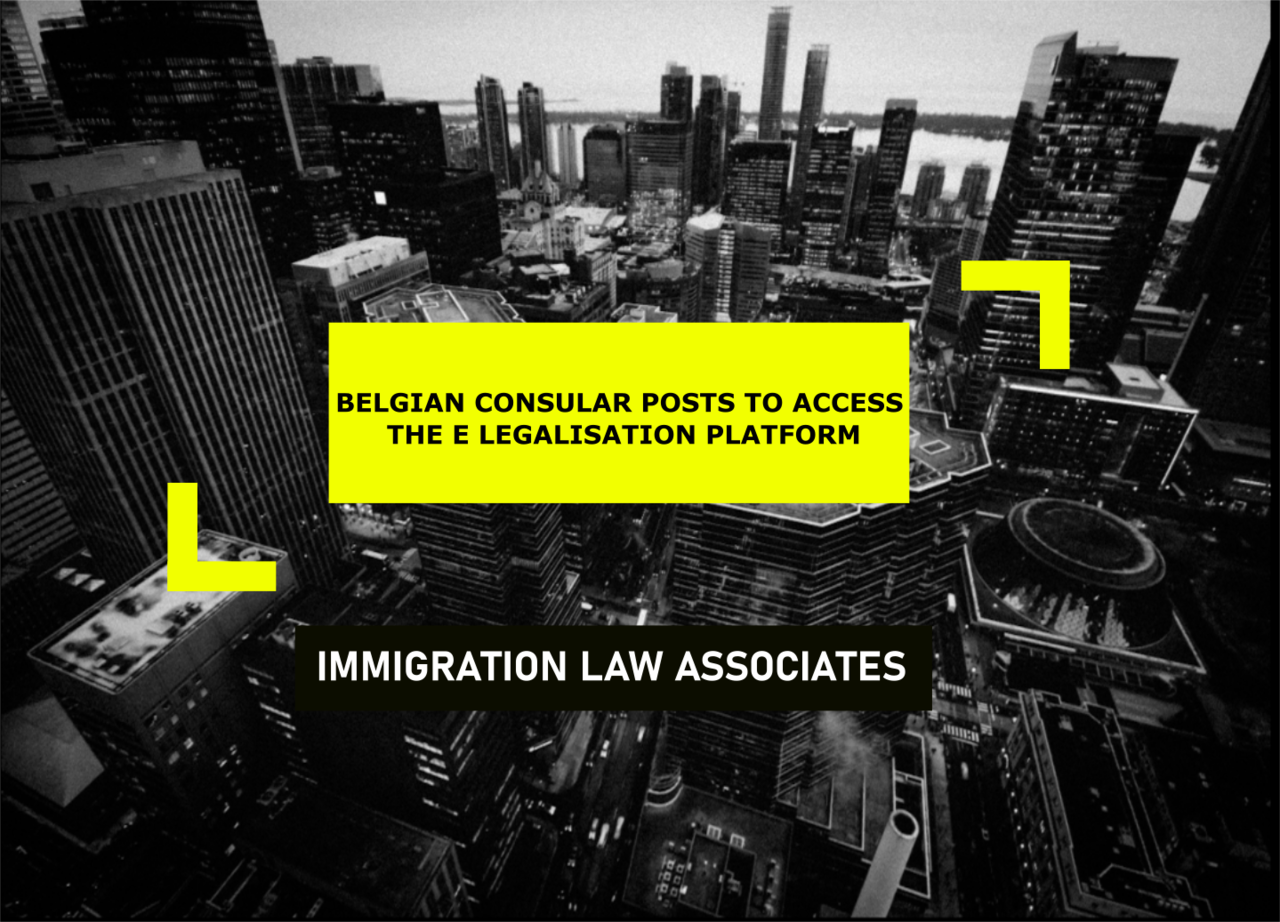On 13 March 2020, the Belgian Official Gazette published the Royal Decree of 8 March 2020, on the legalisation of foreign judicial decisions and authentic acts, and on grounds for refusal of legalisation.
Since 1 May 2018, Belgium has been issuing electronic Apostilles (using an electronic platform: e Legalisation).
The electronic platform will be now operational in all Belgian consular posts (competent to legalise foreign judicial decisions and authentic acts).
- documents for use in Belgium will be legalised electronically
- documents for use in other countries, can be legalised electronically or “on paper” (classic legalisation)-the applicant is given the choice
Practically:
- any country party to the Apostille Convention (The Hague Convention Abolishing the Requirement of Legalisation for Foreign Public Documents), must accept the e-Apostille (thus legalisations will be issued exclusively in the form of an e-Apostille)
- as regards countries which are not party to the Apostille Convention, the applicant must verify whether electronic legalisations are accepted instead of classic “on paper” legalisations. Provided that electronic legalisations are not accepted, legalisation “on paper” will be issued
The electronic platform will be accessible to consular civil servants expressly authorised for that purpose.
Documents legalised will be immediately provided to applicants.
Legalisation data will be stored in the electronic platform for a period of 75 years, however, the access to a document stored and to an Apostille or electronic legalisation, will be granted over a period of 10 years of the legalisation date.
Legalisations will no longer be provided systematically:
- provided that there are sufficient doubts about a document (“prima facie problem”), however, all the conditions required to legalise that document are met, the document may be legalised, and remarks may be addressed in a separate sheet of paper, attached to the legalised document (where about electronic legalisation, the image of the additional sheet of paper, will be registered in the electronic register, along with the document legalised)
- in addition to habitual grounds for refusal ,such as but not limited to lack of capacity and authority on the part of the signatory, counterfeit stamps, translation not provided, content contrary to Belgian public policy, verification of authenticity of the content, in the sense of Article 34 Law of 21 December 2013 (Consular Code), can give rise to grounds for refusal. Verification of authenticity of the content, can be triggered exclusively by serious doubts
The verification procedure is laid down in the Federal Public Service Foreign Affairs Circular on legalisation and verification of foreign documents (14 January 2015), supplemented by the Circular of 29 November 2018.
Decisions to refuse legalisation must be reasoned.







Please sign in or register for FREE
If you are a registered user on The Forum for Expatriate Management, please sign in